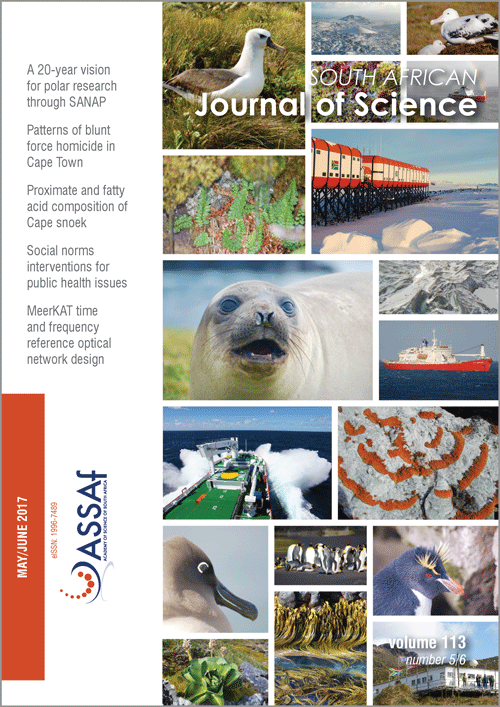A case study from the southern Cape linefishery 2: Considering one’s options when the fish leave
DOI:
https://doi.org/10.17159/sajs.2017/20160254Keywords:
resilience, adaptation, coping, small-scale fishery, southern BenguelaAbstract
Fishers in the small-scale, commercial linefishery in the southern Cape, South Africa, are exposed to variability and change in the marine social-ecological system of which they are a part. Faced with multi-scalar changes within this complex system, fishers employ a wide range of strategies in reaction to change. As part of a broader study of stressors that bring about change in these systems, this contribution examines the fishers’ responses to these changes and is based on a participant-led, semi-structured interview process of skippers/boat owners, crew, processors and spouses/partners, in six communities in the southern Cape region, and has been supplemented with appropriate secondary data. The results are discussed using a resilience framework. The data were initially considered thematically by stressor, but results identified that a place-based analysis was equally important. Three major groupings were identified: (1) fishers who adapt and show clear business-orientation, (2) fishers who cope, and (3) fishers who react and are thus caught in a poverty trap. In addition to place-specific history, local feedback loops and indirect effects need to be better accounted for to understand these responses to change at various scales. The results of this study are expected to contribute to the basis of scenario planning in the region.
Significance:- Analysis of responses to change strategies provides insight into resilience displayed as well as costs and benefits of strategies.
- The description of strategies provides valuable insights into the decision-making processes in linefishery in the southern Cape.
- Cognitive and reflexive decision-making processes are shaped by individuals’ and communities’ experiences of past and present.
- Practical implications of actions are not always the overriding concern in decision-making, which underscores the importance and influence of culture.
- These results provide important insights into a system that is not well described, and highlight knowledge gaps that require further context-specific research.
Downloads
Published
Issue
Section
License

All articles are published under a Creative Commons Attribution 4.0 International Licence
Copyright is retained by the authors. Readers are welcome to reproduce, share and adapt the content without permission provided the source is attributed.
Disclaimer: The publisher and editors accept no responsibility for statements made by the authors
How to Cite
- Abstract 933
- PDF 559
- EPUB 224
- XML 275
- Supplementary Material 274













.png)